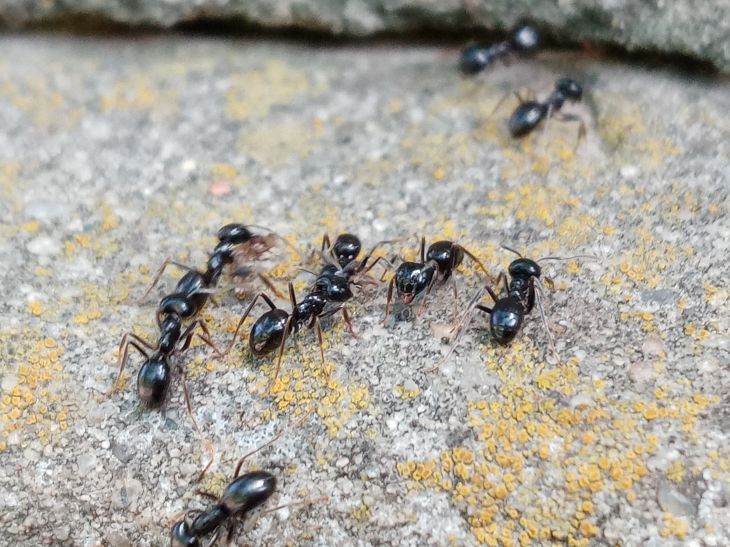Ants, these tiny inhabitants of our gardens, seem fearless and tireless. However, even these little workers have their fears and weaknesses.
For centuries, gardeners have tried to unravel the secrets of ant behavior in order to protect their gardens from their invasions.
Today we will lift the veil of secrecy about what these insects are really afraid of and how to use this knowledge for harmonious coexistence in the garden.
Natural enemies of ants
Ants, despite their large numbers and organization, have many natural enemies. Birds, spiders and other predatory insects pose a serious threat to colonies.
Particularly dangerous for ants are anteaters and echidnas, which are capable of destroying an entire nest in a matter of minutes.

Gardeners can attract birds to their gardens by installing bird feeders and waterers, which will help control ant populations naturally.
Smells that repel ants
Surprisingly, these hardworking insects are very sensitive to certain smells.
Strong aromatic herbs and spices such as mint, garlic, cinnamon and cloves cause discomfort to ants.
Planting these plants around your garden beds or using their extracts as natural repellents can be effective in repelling unwanted guests.
Changes in the environment
Ants are extremely sensitive to changes in their environment. Sudden changes in temperature, humidity, or soil pH can cause an entire colony to abandon its nest.
Experienced gardeners take advantage of this feature by regularly digging up the soil and changing its structure, which makes the beds less attractive to ants.
Chemical means of protection
Modern science offers a wide range of chemicals to combat ants. However, their use requires caution and knowledge. Many insects are afraid of boron and its compounds.
Boric acid, used in small amounts, can effectively repel ants without harming plants.
Disruption of pheromone trails
Ants communicate and navigate using pheromones, leaving chemical trails.
Disturbing these trails will disorient the insects and may cause them to leave the area.
Simply wiping surfaces with a vinegar solution or lemon juice effectively erases pheromone marks, disrupting communication between individuals.
Competition for resources
Surprisingly, ants are afraid of competition. The presence of other insect species, especially those that feed on the same resources, can displace ants from their nests.
Maintaining a balance between the different types of insects in your garden is the key to natural ant population control.
Physical barriers
Creating physical barriers is another effective method of protecting beds. Ants do not like to overcome sticky or slippery surfaces.
Strips of chalk, diatomaceous earth or special adhesive tape around your garden beds can create an impenetrable barrier for these little garden pests.
Earlier we talked about how experienced gardeners use currants.








